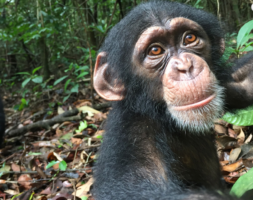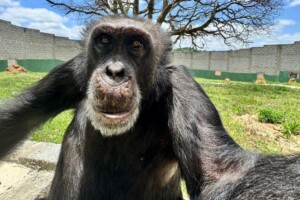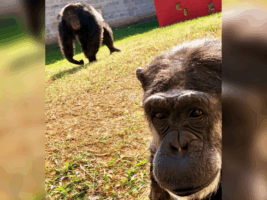NIH reevaluates transfer of chimpanzees to experimentation
According to North-American National Institutes of Health (NIH) statement issued yesterday, the transfer of 186 chimpanzees who are at Alamogordo Primate Facility (APF) will be delayed. These chimpanzees are already retired, but would be used again in researches.
Due to society pressure all over the world, NIH, which is the biggest owner of chimpanzees for use in experimentation in the world, requested the health arm of the National Academy of Sciences an in-depth analysis to reassess the scientific need for the continued use of chimpanzees. The report is expected to take about two years and this means that half-victory was already achieved for this group of unhappy beings who suffered for years isolated and being tortured at cages in laboratories.
Dr. Theodora Capaldo, from R&R Project, who launched the campaign to free these 186 chimpanzees from torture, declared: ““In the midst of national efforts to get all chimpanzees out of invasive research, this decision signals an important willingness on the part of our government to consider their policies toward chimpanzees in research at large.”
While this halt to the transfer is promising, NEAVS/R&R Project will continue pressing NIH to permanently retire not only the Alamogordo chimpanzees but all those now held in labs. The Great Ape Protection Act, legislation which would end invasive chimpanzee research in the U.S. and release all federally-owned chimpanzees to sanctuary, had 161 cosponsors in the U.S. House of Representatives and six cosponsors in the Senate at the close of the 111th Congress.
Dr. Pedro A. Ynterian
President, GAP Project International

 Español
Español
 Português
Português








